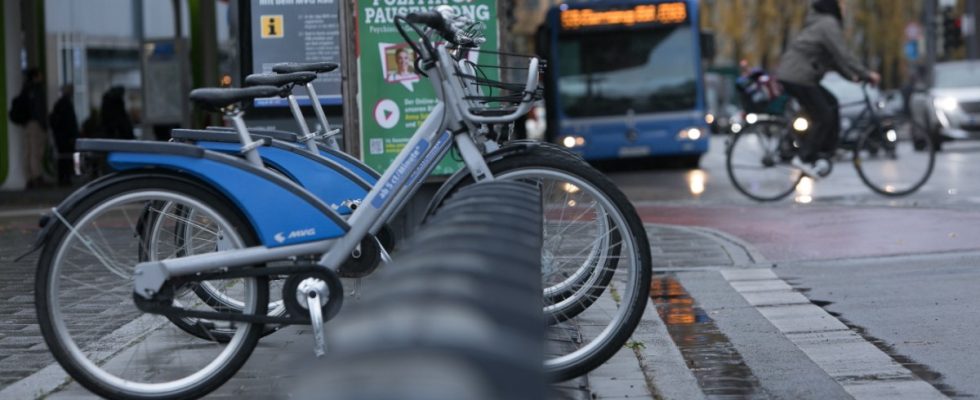The city of Munich and the surrounding area want to redesign the current rental bike system of the Munich Transport Company (MVG). In 2025, the contract for the MVG bike with the service provider Nextbike expires after ten years. A regional bike sharing system will then be introduced in the Munich Transport Association (MVV) area, where users can cycle beyond municipal boundaries.
The Munich Mobility Department, the MVG and the Munich Transport Association (MVV) have already agreed on this. It is still unclear what name the new bike sharing will be given.
One thing is certain: the municipalities decide for themselves which offer they need or want; according to the mobility department, the operational management and controlling of the bike sharing system should be organized centrally. The MVG and MVV then regulate the division of tasks and responsibilities in a cooperation agreement.
Now the Munich city council still has to set the course for this. It will also be about how the offer should be expanded within the city limits. A corresponding city council proposal is currently being voted on and is expected to be approved by the general assembly at the end of November.
It is expected that 675 stations will be created across the board, but they will differ fundamentally from the current 130 or so. Stations are being considered that may only consist of a stele or a sign. The advantage: Unlike physical stations, the new rental and return points would require less technology, which would mean lower manufacturing and operating costs. This is made possible by so-called geofencing, in which the vehicles are located using GPS and have to be parked within a marked zone. This technology is already used, among other things, in rental e-scooters.
Nikolaus Gradl, spokesman for the SPD/Volt parliamentary group in the mobility committee, says that a new tender for the MVG bike system offers the opportunity to further develop the established system – for which the city is internationally praised. “We need the ability for bikes to be parked in an orderly manner at more virtual stations.”
CSU parliamentary group leader Manuel Pretzl criticizes the fact that the old rental stations are expected to be dismantled next year. The expansion of the bike sharing system into the surrounding area is the right thing to do, says Pretzl. But simply tearing down stations that were only set up a few years ago and throwing away bikes is unacceptable, and millions of taxpayers’ money has been paid for this, he says. “It really has nothing to do with sustainability anymore. Before you tear something down, it should first be clear what the new system will look like.”
Economics officer Clemens Baumgärtner (CSU) is also skeptical. According to his calculations, each trip under the new rental system would be subsidized by ten euros. That would be 33.5 million euros in five years – a sum that, in his opinion, the city could also invest in night traffic or increased frequency on the subway.
The Munich district decided this October to stop financing rental bikes. So far it has covered half of the costs, but from autumn 2025 the municipalities will have to shoulder these themselves. This leads to some people reducing the offer, while others – such as Pullach or Neubiberg – even want to increase it.
In total, MVG currently operates around 4,500 rental bikes. In the Munich district, 22 communities currently take part in the MVG-Rad rental system. There are a total of 1,200 bikes available there that must be returned to the 160 stations. In Munich, returns outside of stations are also possible within the return area – which does not cover the entire city.

